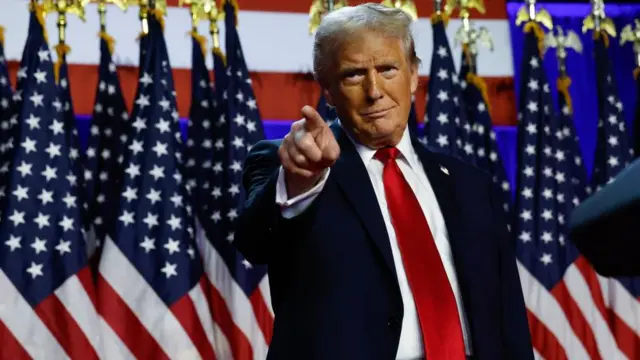Reports
Trump and Sudan: What to Expect from the Return of the Former U.S. President

Sudan Events – Agencies
Under Joe Biden’s administration, Washington did not engage with Sudan’s crisis at a high level. However, in Trump’s era, Sudan might be viewed as a bargaining chip in a regional deal.
Shortly after Trump’s projected victory in the U.S. presidential election, Sudan’s Army Chief, General Abdel Fattah al-Burhan, expressed hope for “enhanced relations between the two countries during Trump’s presidency for the benefit of both nations.”
Hemedti, commander of the Rapid Support Forces, was also quick to extend his congratulations.
The 18-month-long war has turned Sudan into one of the world’s largest humanitarian catastrophes, displacing about 30% of the population, causing tens of thousands of deaths, and leaving widespread hunger in its wake.
A diplomat in the region told Middle East Eye, “I’m sure Trump couldn’t point to Sudan on a map,” adding, “And of course, he’s not someone who cares about details. He likes to leave all that to those around him. But he does like to pick a side.”
Biden’s Absence from Sudan
Neglecting Sudan would not mark a shift for a U.S. president. As fighting continued and the crisis worsened, Washington’s absence grew more conspicuous.
Although Biden assumed office pledging to rebuild relations with Africa after Trump’s first term, he didn’t visit the continent until last month. He rarely mentioned Sudan publicly and did not engage diplomatically, focusing instead on U.S. support for Ukraine and Israel.
Sudanese expert Kholood Khair, founder and managing director of Confluence Advisory in Khartoum, stated, “Sudan simply didn’t make it to Biden’s agenda. There has been very little from the upper echelons of his administration regarding Sudan.”
She pointed out that the U.S. was highly involved in the framework agreement intended to pave the way for Sudan’s return to civilian rule. A major sticking point in this agreement was the reintegration of the RSF into the military—a crucial issue the Americans underestimated, which eventually sparked the conflict.
“The Americans were very involved in the framework agreement, so their lack of accountability when the war broke out was even more egregious,” Khair added.
Trump and Sudan
While Trump’s return to the White House would be significant, some analysts argue that U.S. policy towards Sudan and the broader Middle East may not see much immediate change.
Jalel Harchaoui, an associate fellow at the Royal United Services Institute, said, “A second Trump presidency would have a more staunchly anti-liberal stance, backed by stronger popular support and an ideologically cohesive policy team.”
He added, “This could theoretically favor authoritarian figures like Hemedti in Sudan, Mohammed bin Zayed in the UAE, and Khalifa Haftar in Libya. But in reality, the Biden administration has already abandoned any form of liberal idealism in Sudan.”
For Sudan, it may remain “an appendage” to U.S. policy toward the Middle East and the Gulf, a tool to be leveraged rather than a primary concern. Solving Sudan’s crisis under Trump would likely be part of a broader deal.
Sudan and the Abraham Accords
During Trump’s first term, attention on Sudan was tied to Israel. In October 2020, Sudan was removed from the U.S. list of state sponsors of terrorism, and shortly afterward, Trump announced that Sudan might join the UAE and Bahrain as the third Arab state to normalize relations with Israel under the Abraham Accords.
Kholood Khair remarked, “Just like under Biden, I think Sudan would not be a central issue for Trump.”



